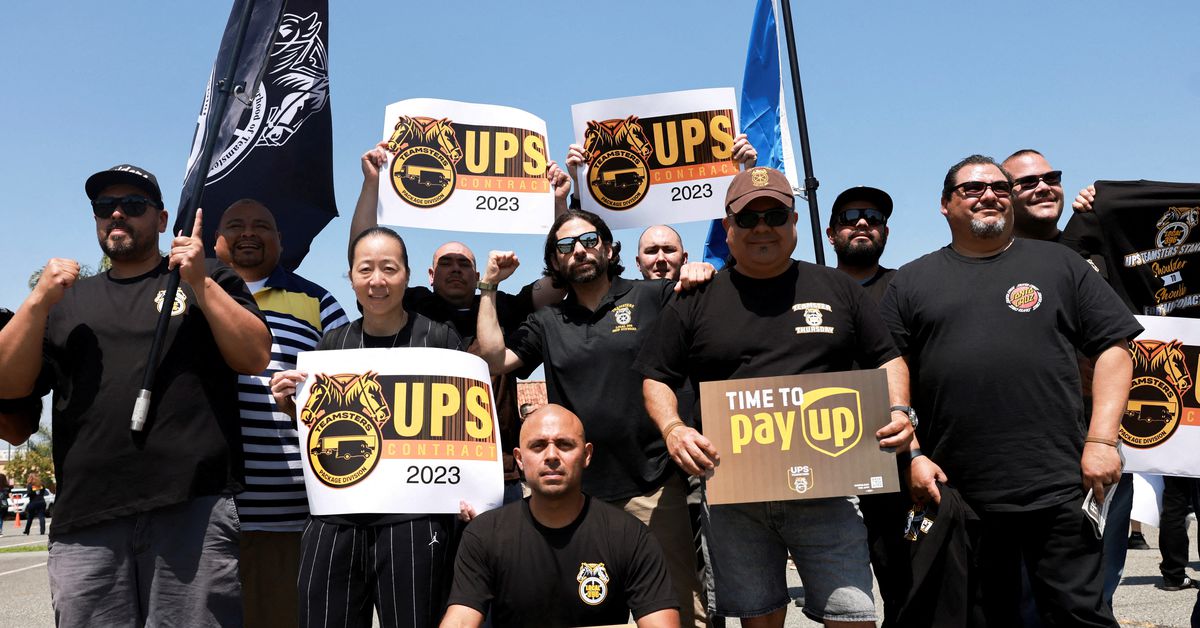A threatened U.S. strike at United Parcel Service (UPS.N) could be "one of the costliest in at least a century," topping $7 billion for a 10-day work stoppage, a think tank specializing in the economic impact of labor actions said on Thursday.
That estimate from Michigan-based Anderson Economic Group (AEG) includes UPS customer losses of $4 billion and lost direct wages of more than $1 billion. A 15-day UPS strike in 1997 disrupted the supply of goods, cost the world's biggest parcel delivery firm $850 million and sent some customers to rivals like FedEx (FDX.N).
Roughly 340,000 union-represented UPS workers handle about a quarter of U.S. parcel deliveries and serve virtually every city and town in the nation. A strike could delay millions of daily deliveries, including Amazon.com (AMZN.O) orders, electronic components and lifesaving prescription drugs, shipping experts warned. They added this also could reignite supply-chain snarls that stoke inflation.
Anderson said a UPS employee walkout would be a bigger risk to the U.S. economy than a work stoppage by UAW workers at the "Detroit Three" automakers, who started contract talks on Thursday.
He noted that the automaker talks cover fewer workers and have a limited geographic impact. In fiscal 2019, GM's (GM.N) fourth-quarter profit took a $3.6 billion hit from a 40-day UAW strike that shut down its profitable U.S. operations.
UPS faces two unappealing choices, Stifel analyst Bruce Chan said in a recent note: Risk a strike and resulting customer losses or acquiesce to Teamster demands that could worsen the company's labor cost disadvantage versus nonunion rivals in an inflationary environment.
 ·1 year ago
·1 year ago LETS GO
LETS GO 


